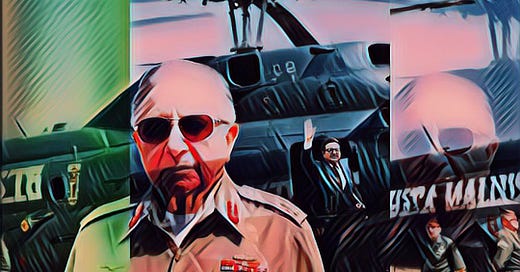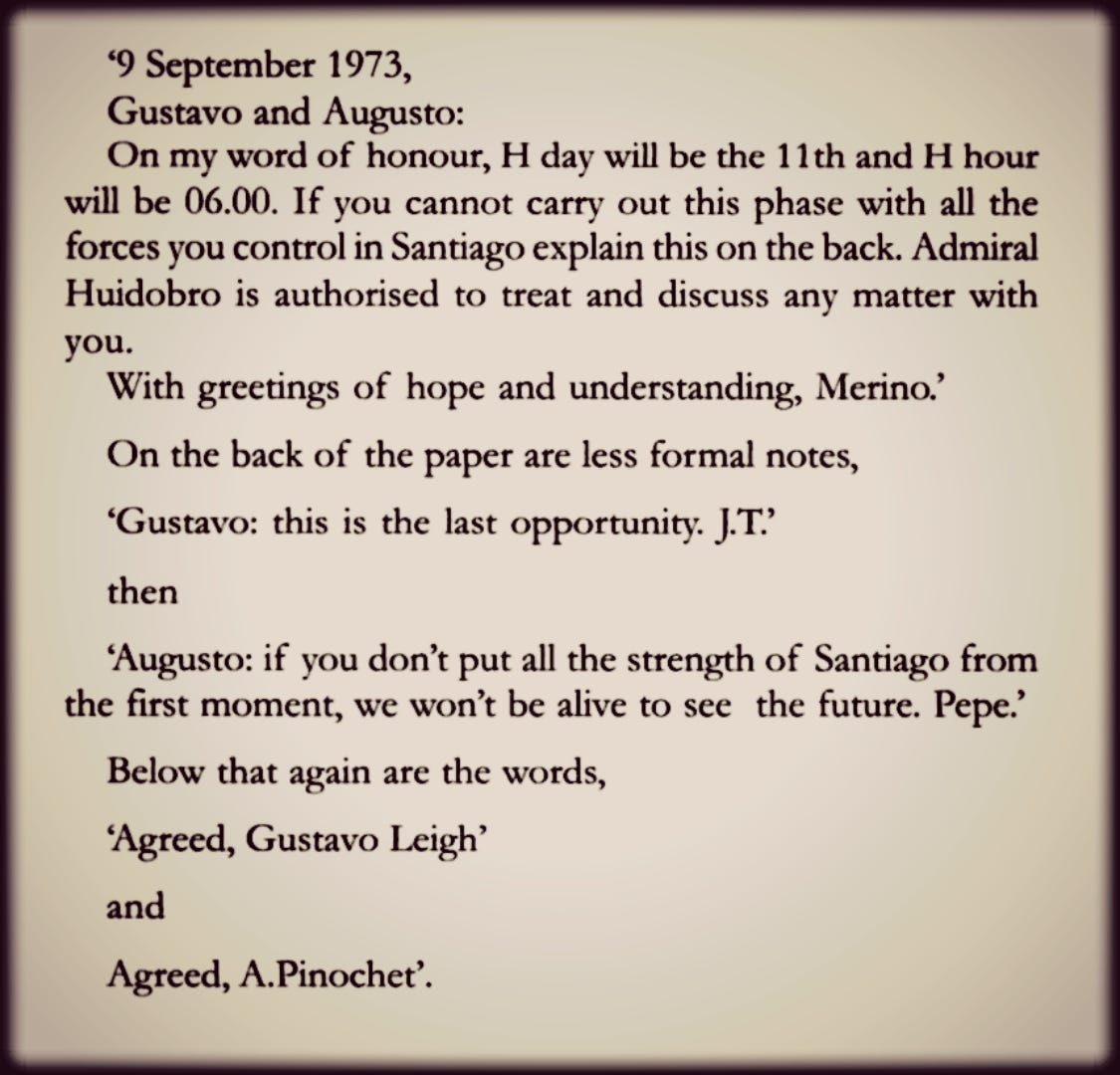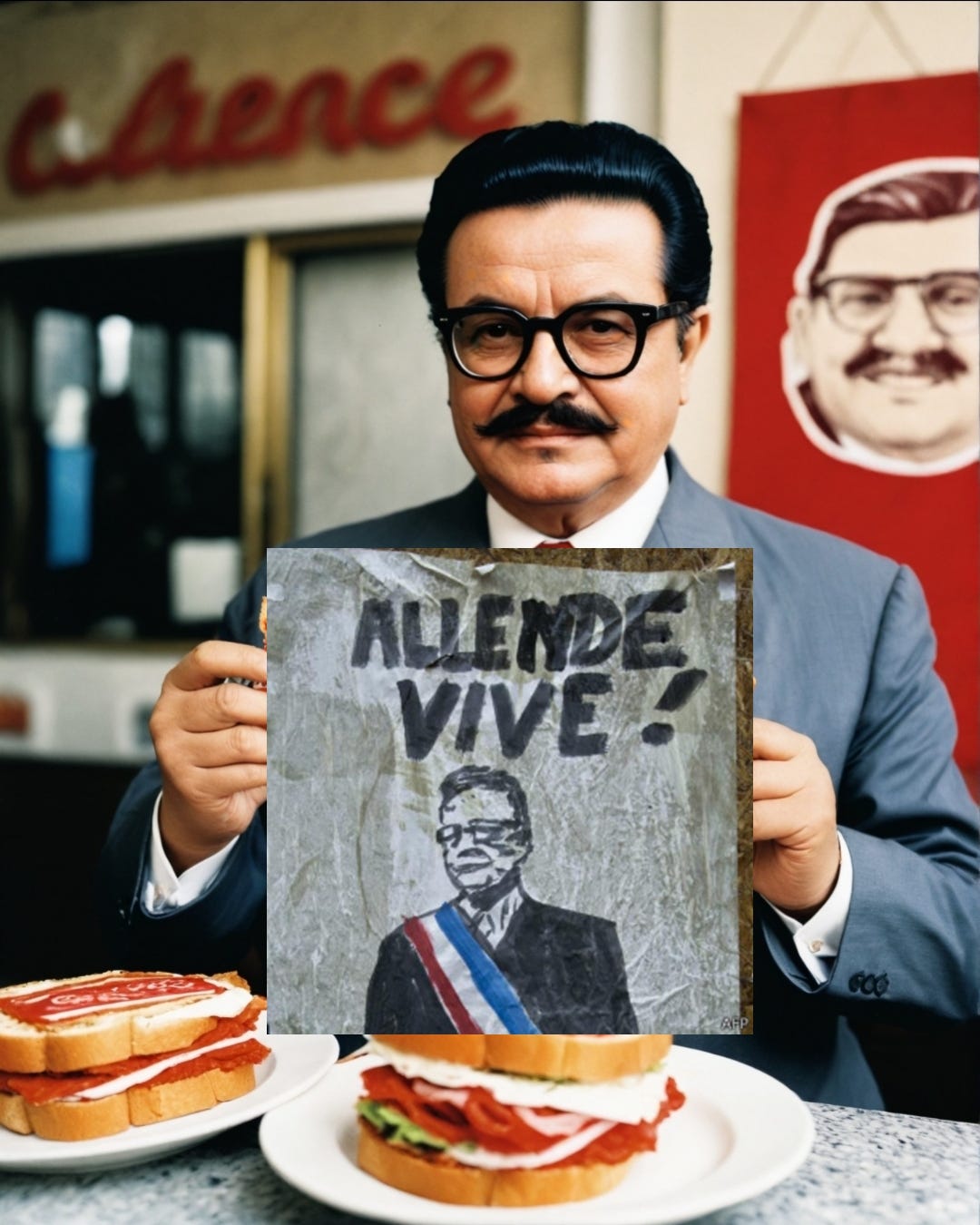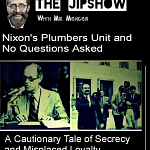Time Stamps:
Introduction: Final Speech Reenactment (0:00)
The Backstory of Salvador Allende (2:17)
What Set the Stage? (4:03)
A Red Sandwich Artist? (12:34)
Operation Condor - Doublespeak and Plain English (16:15)
Your Beloved General is Safe With Us (20:03)
Pinochet’s Death and the Overblown Threat (22:27)
The Backstory of Salvador Allende
In 1970, Salvador Allende entered office as the first Marxist to be elected President in a country with a significant democratic system. Allende's reforms included nationalization of industries, collectivization, and expansion of social services.
Economic instability, inflation, and a polarized political environment had shaped the conditions within Chile.
According to Gustavo Leigh, commander-in-chief of the air force, Augusto Pinochet became involved only a few days before the coup. Navy Admiral Jose Toribino Merino was the chief plotter of the coup (along with Leigh and General César Mendoza of the Carabineros, the national police force). In a letter seeking their approval, Merino urged, “this is the last opportunity.”
Once regarded as a loyal constitutionist, Pinochet was now being urged to turn against the man who gave him the position of Commander-in-Chief of the Army. He hesitated, mulling back and forth over whether his loyalty belonged to man wishing radical transformation or to the military he had felt born to serve.
What Set the Stage?
For decades, Chilean military officers had faced low salaries, and this was unlikely to change under the Allende government. A host of neighboring countries experienced a wave of coups beginning in the 1960s, installing military governments in the following nations:
Ecuador (1963)
Brazil (1964)
Argentina (1966)
Peru (1968)
Bolivia (1969)
Uruguay (1973)
America's anti-communist ideology had influenced Chilean military officers, and now, Allende's government was seen as a hotbed for Soviet influence, and thus, a threat to U.S. interests in Latin America. The CIA engaged in covert activities to destabilize Allende's government, including funding opposition groups. The U.S. imposed economic sanctions and pressured international financial institutions to withhold support from Chile.
In The Dictator's Shadow, Heraldo Munoz offers this insight:
The lesson of Pinochet's violent coup and the subsequent loss of Communist Party clout in Chile was so important to Moscow that Soviet fear of "another Chile" triggered the USSR's invasion of Afghanistan in 1979, to prop up the Communist regime in Kabul.
This shaping of history brought us from Chile's 9/11 to America's own.
The American response to this invasion was to form an alliance with the Mujahideen, the jihadist militant guerrillas, which at the time included Osama bin Laden, who eventually turned after a fallout with the Saudi Royal Family. Both before and after 9/11, he spoke of "bleeding America to the point of bankruptcy" as his primary strategy.
This echoes the correspondence between Richard Nixon, Henry Kissinger, Richard Helms, and John Mitchell, who on September 15, 1970 met to discuss how to "make the economy scream" in Chile.
Helms had stated that nobody from the CIA thought the idea to overthrow Salvador Allende would succeed. When Allende was overthrown, Kissinger lamented the lack of enthusiasm from the press, telling Nixon, “in the Eisenhower period we would be heroes."
According to Heraldo Munoz, Allende's economic program was not aimed at achieving a radical form of socialism. It would retain a private property sector and a mixed sector, intended to coexist with a "social property" sector that was built upon the expropriation of large companies, but over time, smaller factories and farms found themselves placed under state control.
It may not have been "radical" from the vantage point of a die-hard communist, but on both legal and economic grounds, Allende had apparently envisioned aims that were radical under any other standpoint.
In 2021, Victor Espinoza published an article entitled Salvador Allende's Development Policy: Lessons After 50 Years for Wiley Economic Affairs, in which he cites the Basic program of the Popular Unity front.
[T]he UP's (Popular Unity front's) basic programme had two main axes. On the one hand, Allende contemplated a new constitution to establish "a single organization of the State... as the highest directing body of power" p. 15).
Thus, parliament would be replaced by a people's assembly controlled by the governing body to "constitute a national planning system, and its mission would be to direct, coordinate and rationalize" (p. 16). Likewise, Chile's Supreme Court would be controlled directly by the governing body to implement social justice. On the other hand, Allende's development policy was expropriation and control of the production and distribution of goods and services. In particular, the UP planned to confiscate all strategic enterprises, such as: Large-scale mining, the financial system, especially private banking and insurance; foreign trade, large enterprises, and industrial monopolies, production, distribution and consumption of electrical energy, rail, air, and maritime transport, communications, production, refining and distribution of oil and its derivatives, liquefied gas, the steel industry, cement, petrochemicals, and heavy chemicals, cellulose and paper.
Allende expropriated Chile's copper industry, claiming they took too much profit out of the Chilean economy. Allende claimed the authority without involving international arbitration or compensation for the copper companies. The World Bank, which previously gave $31 million in loans to the previous Chilean government, gave nothing to the Allende regime.
But even without these efforts to "make the economy scream," Ludwig von Mises explained why a nation on the course later taken by the Allende government would inevitably find itself dealing with the Calculation Problem in his book, Socialism.
To suppose that a socialist community could substitute calculations in kind for calculations in terms of money is an illusion. In a community that does not practice exchange, calculations in kind can never cover more than consumption goods. They break down completely where goods of higher order are concerned. Once society abandons free pricing of goods, rational calculation becomes impossible. Every step that leads away from the private property of the means of production and the use of money is a step away from rational economic activity.
Munoz cannot help but to concede this point, with or without Western meddling factored into the equation.
A Red Sandwich Artist?
A key question is whether Chile under Allende would be a counterpart to Fidel Castro's Cuba, creating a "red sandwich" that would eventually spread communism throughout South America, or if as advertised, to the chagrin of the die-hard communists, Allende sought to lead a non-violent revolution within his own country through democratic means.
From a Western geopolitical standpoint, Allende did himself a great disservice by calling himself a Marxist and inviting Fidel Castro to Chile for an extensive visit. While the strongest case to many Westerners against the coup and the Pinochet regime is that Allende was democratically elected and September 11, 1973 meant 128 years of democracy crumbled, Castro in contrast led a violent revolution and the communist threat was made visible from America's backyard.
Arguably, Pinochet did not join the effort to overthrow President Salvador Allende until September 9, 1973, just two days before the coup was executed.
Throughout much of his career, Pinochet had been quiet, calculated, and attentive to his surroundings, and found that course effective in rising through the ranks of the Chilean army.
Operation Condor - Doublespeak and Plain English
Operation Condor was a covert campaign carried out in the 1970s and 1980s, involving the collaboration of several South American military dictatorships, designed to suppress dissent through repressive measures, including human rights abuses, extrajudicial killings, disappearances, and a pervasive culture of fear in Latin America.
In 1968, prior to the release of the Archives of Terror, proving the program's existence, U.S. General Robert W. Porter Jr. stated that:
[I]n order to facilitate the coordinated employment of internal security forces within and among Latin American countries, we are ... endeavoring to foster inter-service and regional cooperation by assisting in the organization of integrated command and control centers; the establishment of common operating procedures; and the conduct of joint and combined training exercises.
The National Security Archive, however, provides a damning account based on what has since been exposed.
Founded by the Pinochet regime in November 1975, Operation Condor was the codename for a formal Southern Cone collaboration that included transnational secret intelligence activities, kidnapping, torture, disappearance and assassination, according to the National Security Archive's documentary evidence from U.S., Paraguayan, Argentine, and Chilean files.
Your Beloved General is Safe With Us
As the Soviet Union weakened, in part due to its failed invasion in Afghanistan, the United States saw less of a need for Pinochet as an anti-communist crusader.
David Aaronovitch of the Independent weighed in on Pinochet's arrest in London in 1998 for human rights violations.
For many young people in the early Seventies, the Allende government offered the possibility of something better than either capitalism or Eastern bloc Communism - an elected socialism that elevated the poor, while respecting human rights. (Well, we were young.) And then we saw this vision of guitars, flowers, smiles and poems, replaced by the tales of the stadium, by the disappearance of intellectuals, by unmarked cars, by scrabbled graves in dusty valleys, by electrodes and unheard screams. The refugees arrived, with their stories of missing lovers.
Time passed, and injustice not only prevailed, it took tea with Mrs Thatcher. After 18 years of dictatorship, Pinochet divested himself of formal powers, while maintaining his links to the military and ensuring his immunity from prosecution in Chile. Not, of course, that he had anything to feel guilty about. Despite 3,000 known deaths, and another 1,000 desaparecidos (disappeared, presumed dead), he had, he said, "never ordered the killing of anyone". Last weekend we arrested him, in Britain.
After delivering woes on Allende’s term and life cut short, Aaronovitch takes a shot at those still supporting Pinochet.
A few minutes ago, after locating a couple of websites belonging to Chilean supporters of Pinochet, I e-mailed them this message: "Don't worry. Your beloved general is safe with us. He will not be tortured, stabbed or shot, or have electrodes attached to his genitals. We will not drop him from a helicopter into the sea, kidnap his grandchildren, break his hands or gouge his eyes. Our most vengeful hope is that he and his family may feel - if only for a second - one billionth part of the terrible pain and mental agony that he so pompously and callously visited on others."
External Links:
Foreign Relations of the United States, 1969–1976, Volume XXI, Chile, 1969–1973 by the Office of the Historian
Kissinger’s Bloody Paper Trail in Chile by Peter Kornbluh
The Dictator's Shadow: Life Under Augusto Pinochet by Heraldo Munoz
Salvador Allende's Development Policy: Lessons After 50 Years by Victor I. Espinoza
The Soviets Abandon Allende by The World Factbook
Operation Condor on Trial by the National Security Archive
The arrest of Pinochet has brought my generation in from the cold by David Aaronovitch
Donate to Mr. Menger:
Tip with Buy Me a Coffee
Tip with Cash App















Share this post